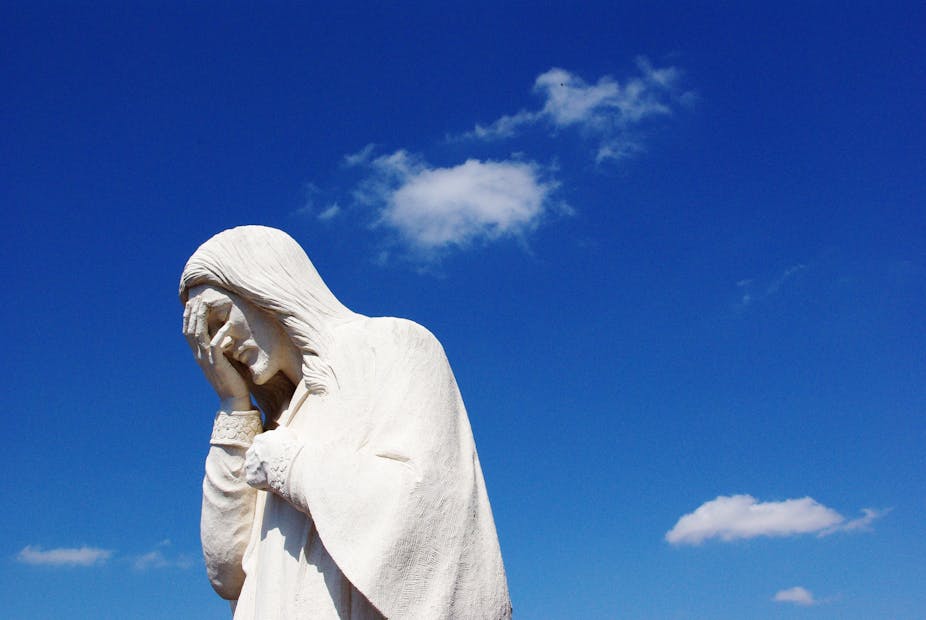I’d like to respond to a recent article for The Conversation by Martin Sevior, an active scientist and church leader.
Sevior argues that – apart from fundamentalism – science and religion are complementary.
He believes there need not be conflict between them. He stresses that the universe appears “fine-tuned” for the development of humanity, that we are created in the image of God with free will and intelligence, and that we can make sense of the universe.
As a consequence, “science and religion go hand in hand”.
Up to a point, Sevior is certainly right. Some of the greatest scientists in history have been strongly religious – Faraday, Galileo and Newton are obvious examples – and there are many today.
We all struggle to make sense of the universe, and Sevior’s liberal Christianity is probably as good a way as any.
That said, I don’t regard Sevior’s arguments as compelling. He may believe the universe is fine-tuned for life but another physicist, Victor Stenger, argues at length that it is not.
When the physicists have finished arguing, the rest of us may be given a useful conclusion. In the meantime, we must simply regard the matter as unsettled.
I share with Sevior the “subjective reality” of religious experience. The problem is, I’m not sure what this reality actually amounts to.
More than a century ago, the mathematician W. K. Clifford argued that even the strongest religious experiences might simply be due to hallucinations.
Psychologists can readily show us just how badly our much-evolved brains function. Maybe our religious feelings are just some kind of by-product of our mental processes.
Sevior points out that we have only been on the planet for a tiny fraction of its existence. For much of the rest of the time, unintelligent creatures have struggled to exist, and died in myriad horrible ways.
If this entire process was intended to produce us, all those billions of deaths were both wasteful and cruel. And if the multiple universe theory is correct, both the wastage and the cruelty are multiplied.
Even if we accept Sevior’s argument for some sort of “designer”, it does not follow that this designer is a loving, Christian God.
It might be Yahweh or Allah, or perhaps a committee of Hindu gods. Or it might be a being who regards us with no more interest than a scientist does a dish of mould. We simply don’t know.
We must also recognise that the trend within Christianity is towards a much more aggressive and conservative assertion of faith.
The liberal churches and developed nations are losing believers. By contrast, the conservative and fundamentalist churches, especially those in places such as Africa, are gaining traction.
Eventually, the latter will become predominant, and this is likely to lead to yet more conflict between religion and science.
I do not dispute that Sevior’s views are compatible with science as it currently exists. But science continues to advance, creating new issues and raising new questions.
Sevior lays great stress upon our freedom of will, and our being made in God’s image.
What would he think, I wonder, if science showed we do not have freedom of will? What would he do if our actions were shown to be controlled by natural laws rather than choice?
How would Sevior react if we discovered aliens who had absolutely nothing in common with us and our ideas regarding the image of God?
My suspicion is that the future relationship between science and religion will be rather similar to the recent past: there will be periods of harmony and periods of outright conflict.
Given intelligence and goodwill, the conflicts can probably be handled without too much difficulty. My great fear is that fundamentalism will continue to increase in power; that, ultimately, it will thrust aside moderates such as Sevior and impose its dogmas upon science itself.
If that happens, our descendants may truly find themselves entering a new dark age.
Are science and religion compatible? Leave your views below.
A complex God: why science and religion can co-exist, by
Martin Sevior
Write for The Conversation: pitch@theconversation.edu.au

